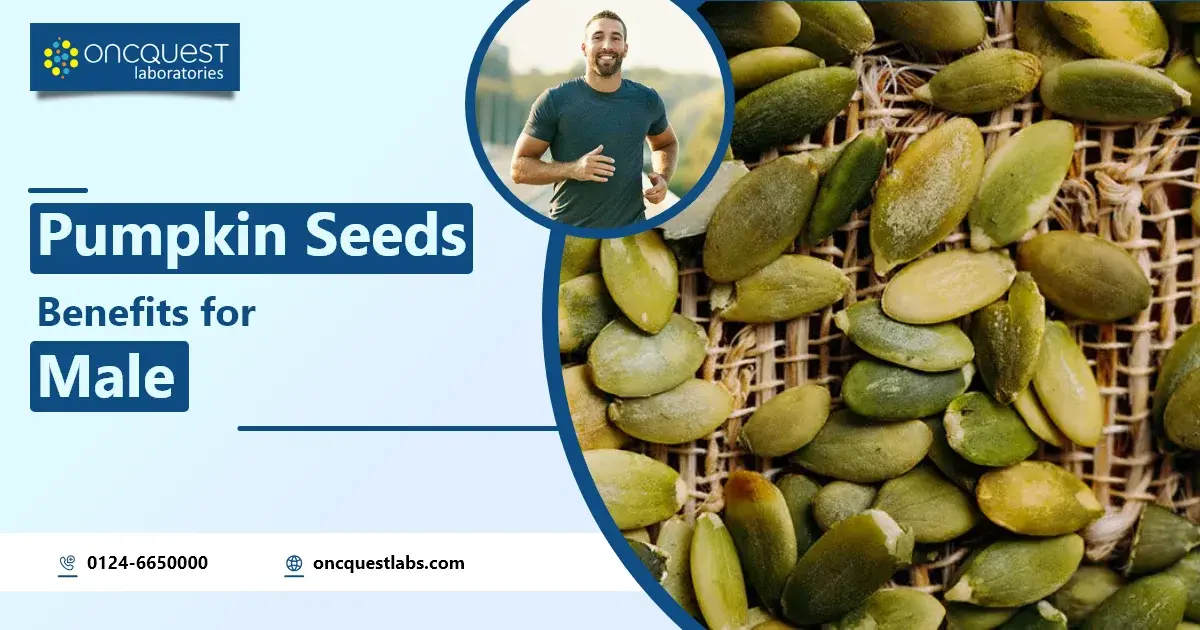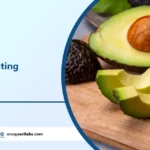Pumpkin seeds, often overlooked as a simple byproduct of the pumpkin, are nutritional powerhouses packed with essential vitamins and minerals. These tiny seeds have been cherished for centuries for their health benefits, and modern research continues to support their role in promoting overall well-being. While pumpkin seeds offer a range of health advantages for everyone, they hold particular significance for men. Rich in nutrients like zinc, magnesium, and healthy fats, pumpkin seeds can support prostate health, boost fertility, enhance testosterone levels, and improve heart and mental health. In this article, we will delve into the specific benefits of pumpkin seeds for male health and explore how incorporating these seeds into your diet can lead to a healthier, more vibrant life.
Contents
Nutritional Value of Pumpkin Seeds
Pumpkin seeds, also known as pepitas, are a nutritional treasure trove, offering an impressive array of essential nutrients. They are particularly rich in zinc, a mineral crucial for immune function, prostate health, and hormone production, making them especially beneficial for men. Additionally, pumpkin seeds are a good source of magnesium, which is vital for numerous bodily functions, including muscle and nerve function, blood sugar control, and blood pressure regulation. They also provide healthy fats, including omega-3 and omega-6 fatty acids, which support heart health and inflammation reduction. Furthermore, pumpkin seeds are packed with antioxidants like vitamin E, which help protect cells from damage, and they offer a significant amount of protein, aiding in muscle repair and growth. The combination of these nutrients makes pumpkin seeds a powerful addition to a balanced diet, particularly for men looking to enhance their overall health.
Pumpkin Seeds Benefits for Male
Supports Prostate Health
Pumpkin seeds are rich in zinc, which plays a crucial role in maintaining prostate health. The prostate gland contains the highest concentration of zinc in the body, and adequate zinc levels are essential for its proper function. Studies have shown that pumpkin seeds can help reduce symptoms of benign prostatic hyperplasia (BPH), a common condition in older men characterized by an enlarged prostate that can lead to urinary problems. The phytosterols in pumpkin seeds also contribute to prostate health by potentially inhibiting the growth of prostate cells and promoting normal urinary function.
Enhances Male Fertility
Male fertility can be significantly impacted by factors like diet and nutrient intake. Pumpkin seeds are a valuable source of zinc and antioxidants, both of which are critical for male reproductive health. Zinc is vital for the production and function of healthy sperm, improving sperm count, motility, and overall quality. Antioxidants in pumpkin seeds, such as vitamin E, help protect sperm from oxidative stress, which can damage DNA and impair fertility. Including pumpkin seeds in the diet can therefore enhance male fertility by supporting sperm health.
Boosts Testosterone Levels
Testosterone is the primary male sex hormone responsible for various functions, including muscle mass, energy levels, and libido. Pumpkin seeds contain significant amounts of zinc, which is known to support testosterone production. Healthy fats, particularly omega-3 and omega-6 fatty acids found in pumpkin seeds, also play a role in hormone production and balance. Regular consumption of pumpkin seeds can help maintain and potentially boost testosterone levels, contributing to improved physical performance, sexual health, and overall vitality.
Promotes Heart Health
Heart health is a critical aspect of overall well-being, and pumpkin seeds can contribute positively in this area. They are rich in healthy fats, including omega-3 and omega-6 fatty acids, which help reduce cholesterol levels and inflammation. Magnesium in pumpkin seeds is essential for maintaining normal blood pressure and heart rhythm, reducing the risk of cardiovascular diseases. The antioxidants present in pumpkin seeds, such as carotenoids and vitamin E, further protect against heart disease by preventing oxidative damage to blood vessels.
Improves Mental Health and Mood
Mental health and mood regulation can be influenced by nutritional intake, and pumpkin seeds offer several benefits in this regard. Magnesium, found abundantly in pumpkin seeds, is known to have a calming effect on the brain, helping to reduce symptoms of depression and anxiety. Additionally, pumpkin seeds contain tryptophan, an amino acid that the body converts into serotonin, a neurotransmitter that plays a key role in mood regulation and sleep. Regular consumption of pumpkin seeds can thus support mental health and enhance mood stability.
Enhances Physical Performance and Recovery
For men who engage in physical activities or sports, pumpkin seeds can be a valuable dietary addition. They provide a good source of protein, essential for muscle repair and growth. The high magnesium content helps in muscle contraction and relaxation, reducing the risk of cramps and muscle fatigue. Antioxidants and anti-inflammatory compounds in pumpkin seeds aid in reducing exercise-induced inflammation and oxidative stress, promoting quicker recovery and
Regulates Blood Sugar Levels
Managing blood sugar levels is crucial for preventing and controlling diabetes, and pumpkin seeds can be beneficial in this regard. They have a low glycemic index, which means they do not cause rapid spikes in blood sugar levels. The fiber in pumpkin seeds helps slow down the absorption of glucose, while magnesium improves insulin sensitivity, allowing for better blood sugar control. Including pumpkin seeds in a balanced diet can thus aid in regulating blood sugar levels and reducing the risk of diabetes-related complications.
Supports Immune Function
A robust immune system is essential for protecting the body against infections and diseases. Pumpkin seeds are packed with nutrients that support immune health, including zinc, vitamin E, and other antioxidants. Zinc plays a vital role in the development and function of immune cells, while vitamin E protects cells from oxidative damage, enhancing immune response. Regular consumption of pumpkin seeds can help strengthen the immune system, making the body more resilient to infections and illnesses.
How to Eat Pumpkin Seeds
Pumpkin seeds, also known as pepitas, are not only nutritious but also incredibly versatile. Here are several methods and tips for enjoying pumpkin seeds:
1. Raw
- Straight from the Bag: Raw pumpkin seeds can be eaten as a simple and healthy snack straight from the bag.
- Smoothies: Add a handful of raw pumpkin seeds to your smoothies for an extra boost of protein and healthy fats.
2. Roasted
- Basic Roasted Pumpkin Seeds: Toss raw pumpkin seeds with a bit of olive oil and salt, spread them on a baking sheet, and roast at 300°F (150°C) for 20-25 minutes, stirring occasionally until they are golden brown and crispy.
- Flavored Roasted Seeds: Experiment with different seasonings like garlic powder, paprika, cinnamon, or even a bit of sugar to create sweet or savory roasted seeds.
3. Salted
- Salty Snacks: Roast pumpkin seeds with a sprinkle of sea salt for a delicious and satisfying salty snack.
- Boiled and Salted: Boil pumpkin seeds in salted water for 10 minutes before roasting. This ensures the salt penetrates the seeds for a more intense flavor.
4. Sprouted
- Sprouting Pumpkin Seeds: Soak raw pumpkin seeds in water for 8-12 hours, then rinse and drain them. Spread the seeds out on a tray and let them sit for another 24-48 hours, rinsing every 12 hours until they begin to sprout. Sprouted seeds can be eaten raw or roasted.
Potential Side Effects of Pumpkin Seeds
While pumpkin seeds are generally considered safe and nutritious, it’s important to be aware of potential side effects and considerations to ensure they are consumed safely and effectively.
Allergies
- Potential Allergic Reactions: Although rare, some individuals may be allergic to pumpkin seeds. Symptoms of an allergy can include itching, swelling, difficulty breathing, and gastrointestinal issues.
- Advice: If you experience any allergic symptoms after consuming pumpkin seeds, discontinue use immediately and consult a healthcare provider.
Digestive Issues
- High Fiber Content: Pumpkin seeds are high in fiber, which is beneficial for digestive health but can cause issues such as bloating, gas, or stomach cramps if consumed in large quantities.
- Advice: Introduce pumpkin seeds into your diet gradually and ensure you drink plenty of water to help your digestive system process the fiber.
Overconsumption
- Caloric Intake: Pumpkin seeds are calorie-dense due to their high fat content. Eating too many can lead to an excessive intake of calories, potentially leading to weight gain.
- Advice: Monitor portion sizes. A typical serving is about 1 ounce (28 grams), roughly a small handful, which provides a healthy amount of nutrients without excessive calories.
Interaction with Medications
- Diuretics: Pumpkin seeds have a mild diuretic effect, which means they can increase urine production. This may interfere with diuretic medications or conditions requiring fluid balance.
- Blood Thinners: The vitamin K content in pumpkin seeds can potentially interfere with blood-thinning medications, affecting their efficacy.
- Advice: If you are on medication, especially diuretics or blood thinners, consult your healthcare provider before incorporating pumpkin seeds into your diet.
Pumpkin Seed Oil Considerations
- Heat Sensitivity: Pumpkin seed oil is best used as a finishing oil or in salad dressings, as high heat can degrade its beneficial compounds.
- Advice: Avoid cooking with pumpkin seed oil at high temperatures. Instead, use it to drizzle over dishes after cooking.
Conclusion
Pumpkin seeds, with their rich nutritional profile, offer a plethora of health benefits, especially for men. They support prostate health, enhance male fertility, boost testosterone levels, promote heart health, improve mental well-being, aid in physical performance and recovery, regulate blood sugar levels, and strengthen the immune system. Despite their many advantages, it’s important to consume pumpkin seeds in moderation and be aware of potential side effects such as allergies, digestive issues, and interactions with medications. By incorporating pumpkin seeds into your diet thoughtfully, you can harness their full potential and enjoy a healthier, more vibrant life. Always consult with a healthcare provider if you have any concerns or pre-existing conditions.
FAQ
Can I eat pumpkin seeds every day?
Yes, you can eat pumpkin seeds every day. They are packed with essential nutrients. However, it’s important to consume them in moderation, typically around 1 ounce (28 grams) per day, to avoid excessive calorie and fiber intake.
Are pumpkin seeds safe for everyone?
Pumpkin seeds are generally safe for most people. However, those with allergies to pumpkin seeds or similar seeds should avoid them. Additionally, individuals on certain medications, such as diuretics or blood thinners, should consult their healthcare provider before incorporating pumpkin seeds into their diet.
How should I store pumpkin seeds?
Store pumpkin seeds in an airtight container in a cool, dry place, away from direct sunlight. For longer shelf life, refrigerate or freeze them. Proper storage helps prevent the seeds from going rancid and maintains their nutritional value.
Can pumpkin seeds help with weight loss?
Pumpkin seeds can support weight loss when consumed in moderation as part of a balanced diet. They are high in protein and fiber, which can help you feel fuller for longer. However, due to their calorie density, portion control is important.





